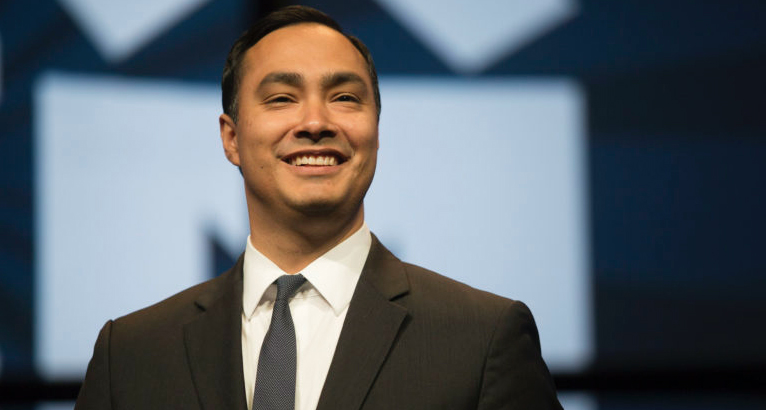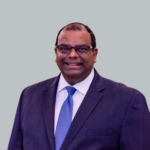U.S. Rep. Joaquin Castro discussed mental health, free college, gun control and more on Nov. 3 at a virtual press conference he held for student journalists from all over San Antonio.
Castro, a Democrat who represents the 20th Congressional District in San Antonio, is serving his fifth term in the U.S. House of Representatives and is up for re-election.
Approximately 25 high school and college students, including a representative from The Mesquite at Texas A&M University-San Antonio, attended the press conference.
Mental health resources in schools was one of the topics. Castro reminded everyone of the billions of dollars in COVID relief money spent over the last two years.
“There was a portion of that that was for mental health services, including assistance to schools and universities,” Castro said. “The pandemic was very tough for a lot of people, but I think especially for students because it was a time of isolation.”
Castro’s response to mental health was a segue to the topic of gun control. Castro recalled thoughts he had, as a parent, after the Robb Elementary School shooting in Uvalde.
He has two children who attend school within the Northside Independent School District in San Antonio.
“I was going to pick my kids up at school and I was staring at the front of the school and imagining what would happen, what the response would be if someone attempted a similar act there, at their school,” Castro said. “Whether my kids would be safe? I think parents were replaying that, I’m sure, as they were picking their kids up from school throughout the state and, really, the country, around the world.”
After sharing his experience, he described the legislation he’d voted on in Congress about gun control.
“I have supported and voted for legislation on universal background checks to ban assault weapons or take them off the streets, greater mental health resources for folks,” Castro said. “I supported legislation also on the physical side for securing schools, making them safer.”
The low Latino voter turnout and what Castro is doing about it was another question.
“A big part of that is, or some part of it is the amount of outreach and attention that the community is getting,” Castro said. “Survey after survey shows that when Latinos are asked, compared to white voters or others, ‘Hey did anybody ask you to go vote?’ or ‘Did anybody reach out to you to vote?’, you have a higher percentage of Latino voters that say ‘No, nobody asked me to go vote.’ That’s a big part of the challenge … They feel like they don’t have an understanding necessarily of what all the candidates stand for and even sometimes what the party stands for.”
One student provided their school’s environmental scan statistics showing only 44.8% of San Antonio students have some college and only 20.8% go on to complete their bachelor’s degree. They wanted to know what the federal government is doing to close the education gap.
Castro said a lot of students try to balance the responsibility of working to survive and completing college.
“There’s this work-school tug of war that’s going on, and oftentimes work ends up winning out,” Castro said. “People end up putting off their college degree, thinking they’ll come back to it.”
Castro continues to search for options to ensure students aren’t forced to choose between working to survive over earning a degree.
“That’s why when we talk about making college more affordable, and I’ve supported increasing Pell Grants and financial aid, that’s a big part of the reason I’m doing that; I want to get people out of that work-school tug of war so they do not have to choose between those two things,” he said.
Castro also explained his stance on free four-year college.
“We supported two years of free community college,” Castro said. “And I do think we should look into the cost and whether the remaining four years should be free and come up with a plan that could make it workable.
“I’m open to any of those ways that will help us graduate more people from school and make sure they get their degree and pursue their American dreams.”
Castro’s press conference also included journalism students from the University of Texas at San Antonio, Trinity University, Palo Alto College, John Marshall High School, Oliver Wendell Holmes High School, Louis D. Brandeis High School, Sandra Day O’Connor High School, Tom C. Clark High School, Sam Houston High School, Burbank High School, Communication Arts High School and Judson High School.
Castro encouraged them to pursue journalism as a career.
“I want to encourage y’all, as you’re interested in journalism, to continue your interest,” Castro said. “I hope that some of you, if not a majority of you will end up pursuing it because now, more than ever, our nation needs good journalists who are holding powerful people in politics accountable, but really powerful people in society accountable and powerful institutions.”
Castro reminded students that “democracy is not guaranteed” and that it’s important to get out to vote.
“Let me encourage y’all to, obviously, be sure you vote — whoever you vote for, whatever party you vote for — but also take advantage of those resources in social media to express your opinions to politicians,” Castro said.
Castro and his twin brother Julian Castro, who was mayor of San Antonio and Secretary of Housing and Urban Development, grew up in San Antonio and graduated from Thomas Jefferson High School.
Castro also served five terms in the Texas State Legislature.







